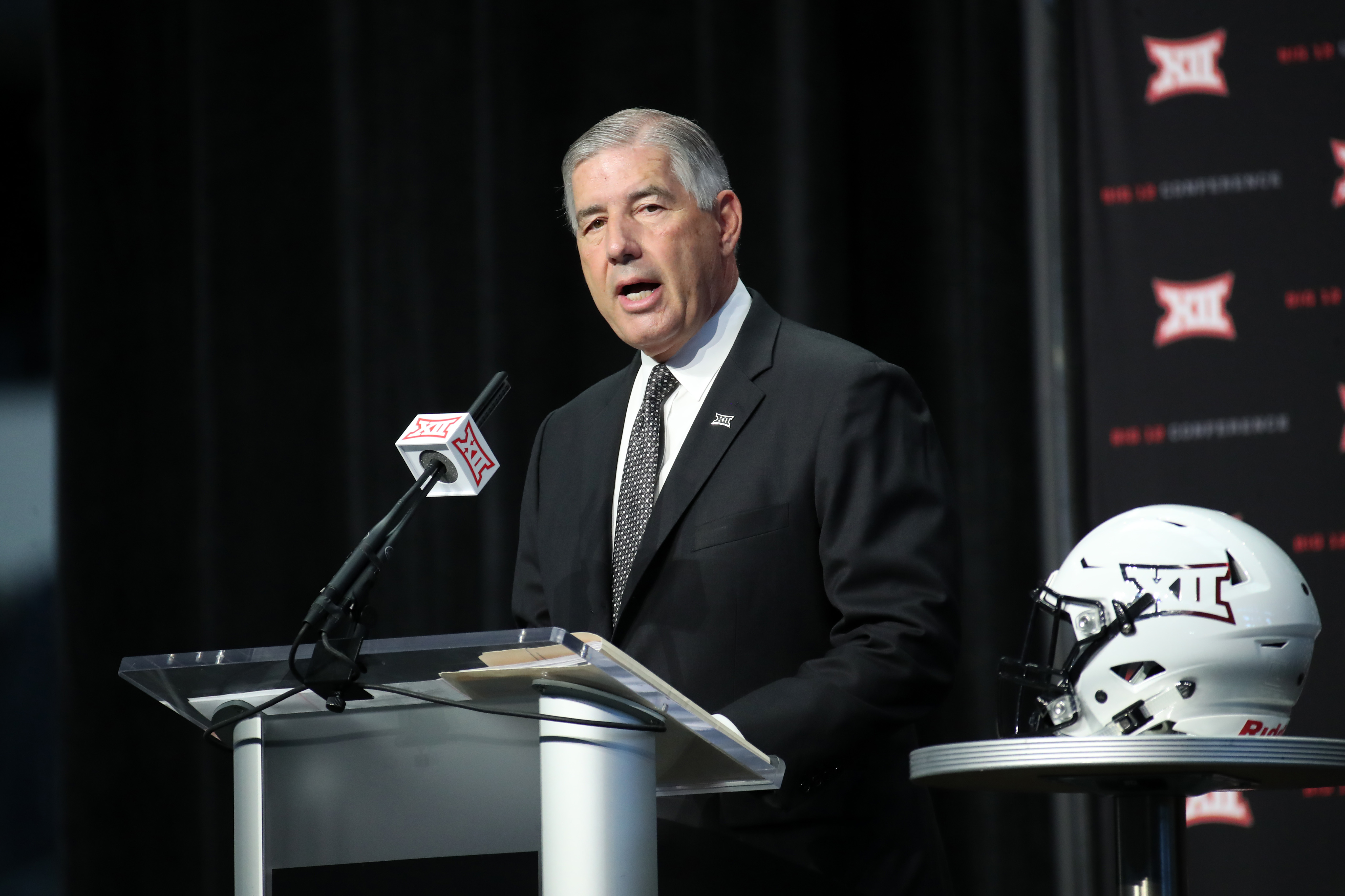AUSTIN, Texas — The Big 12 Conference could see the value of its television deal cut in half once Texas and Oklahoma bolt for the Southeastern Conference, Big 12 Commissioner Bob Bowlsby said Monday at a hearing of Texas lawmakers.
A committee of Texas senators heard testimony from university leaders at Baylor, TCU and Texas Tech on the monetary and academic losses that conference realignment would mean for the Big 12 and its members once Texas and Oklahoma leave for the SEC in 2025.
University of Texas at Austin President Jay Hartzell testified that the path to making the switch became clear “into the summer,” and that UT told Bowlsby that in a call following news of the move. Hartzell said the school would “continue to honor all agreements.”
“Up until the moment you hit send on the decision, you are always thinking, ‘Is this the right thing for the University of Texas at Austin?’” Hartzell said.
Bowlsby has been highly critical of both Texas and Oklahoma, accusing them of plotting for months to leave the 10-member league for the powerful SEC. He also accused ESPN of working behind the scenes to gut the Big 12, even sending a cease-and-desist letter that the cable giant refuted, but backed off that stance Monday: “We have agreed to not escalate this publicly. It’s in neither party’s best interest to do so.”
Of far more interest to the Texas lawmakers was the future of the Big 12 without the Sooners and Longhorns. Bowlsby said the TV contract value would take a 50% hit.
The Big 12 distributed $345 million to its 10 members this year ($34.5 million apiece), down from the previous year because of the pandemic. Most of that revenue comes from the Big 12′s TV deals, including ESPN. The SEC is positioned to distribute as much as $70 million annually to its members in coming years.
Bowlsby said he supported the idea of the remaining Big 12 teams sticking together and said they are exploring their options. He said he wouldn’t blame any school for looking out for themselves first, but “there is a right way to do it.”
Members of the Senate panel focused their questions on the economic impact to Texas cities such as Fort Worth, Waco and Lubbock, the homes of the Big 12 Texas schools being left behind. Baylor President Linda Livingstone told the committee that “the livelihood” of some Texas communities was at stake since the opponent mattered in ticket sales and attracting larger crowds.
Baylor athletic director Mack Rhoades said the financial implications could put into question upcoming projects — including the building of a new basketball arena — and affect academic opportunities for students. Rhoades said the school, like others impacted, will also struggle to attract and keep talent on the field and in coaching staffs.
“The economic impact is real,” Rhoades said less than four months after the men’s basketball team won the NCAA championship. “If we are no longer a member of a Power Five, we will sell less tickets, we will sell less merchandise, we will raise less money and we will have less corporate sponsorship.”
Texas A&M officials didn’t accept invitations to testify at the hearing, according to state Sen. Jane Nelson, who chaired the committee. Texas A&M left the Big 12 for the SEC in 2012.
Nelson told state representatives present at the hearing that she was sorry the House chamber could not hear testimony on the subject due to a lack of quorum after over 50 Democratic Texas representatives left the state to block for a second time the passage of new state voting restrictions.
The Legislature’s special session called by Republican Gov. Greg Abbott ends this week, and he has vowed to call another session to ensure the passage of the voting bills.




